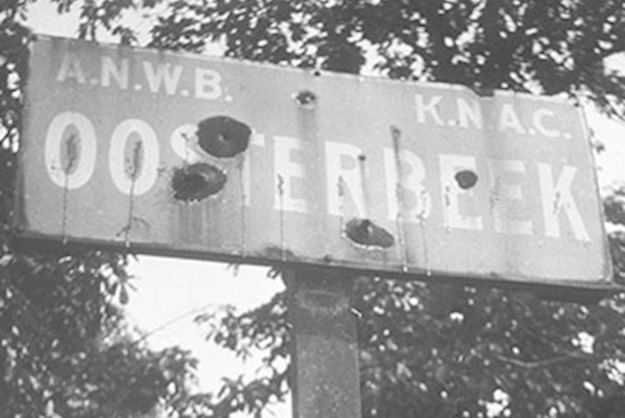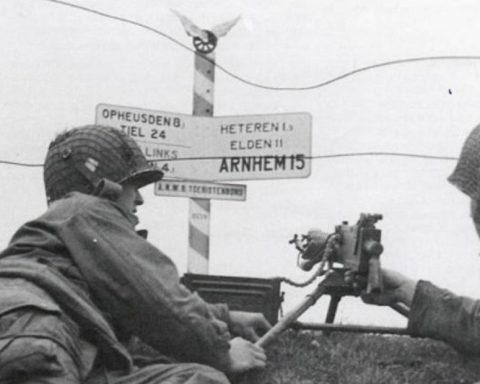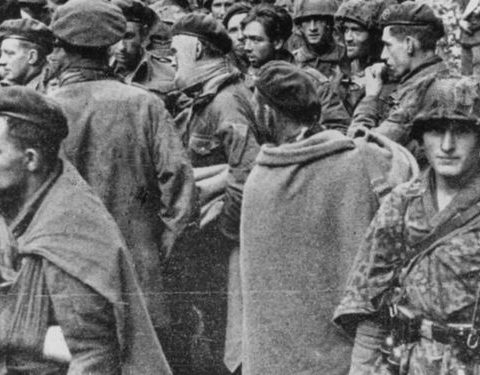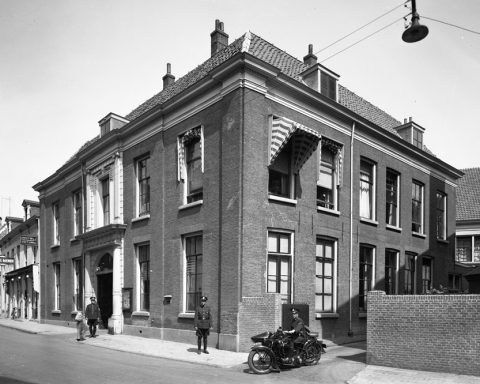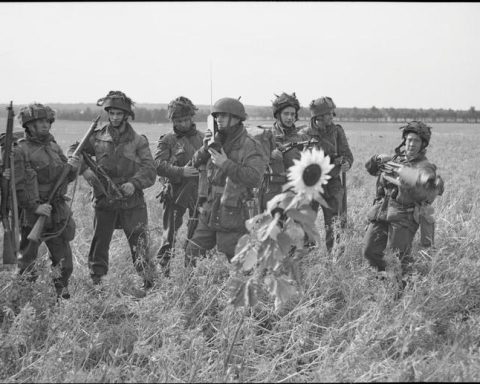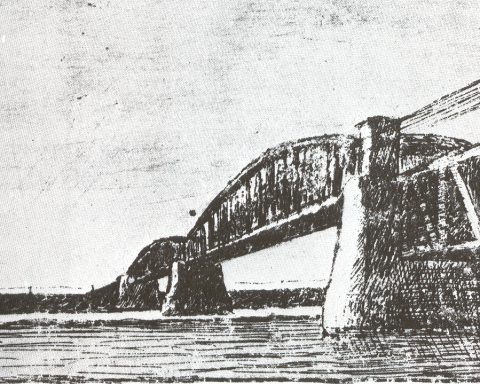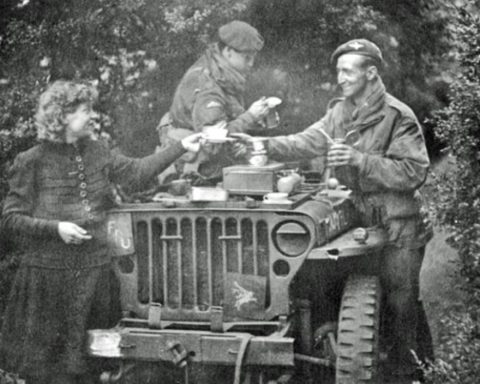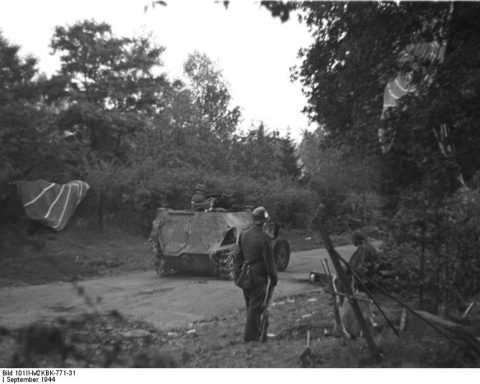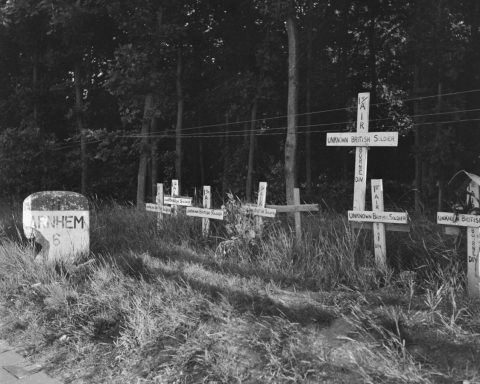Now that the British had left Oosterbeek on Tuesday, September 26, the Germans immediately took measures. All residents of Oosterbeek were ordered to leave their homes that same day. Just like a day earlier in Arnhem, the evacuation order was given.
The Germans assumed that the fighting was far from over. With no civilians walking around, the Germans had their hands free.
That day, British doctor Graeme Warrack visited Kate ter Horst’s house, next to the Oude Kerk in Oosterbeek. Kate ter Horst had cared for the British wounded in her home for more than a week. Now Warrack saw that she was loading a handcart with things in front of her house.
When asked by Warrack what she was doing, Ter Horst explained that Oosterbeek was being evacuated by order of the Germans.
She put her three children on the handcart and left with her husband Jan ter Horst. Jan ter Horst had spent the entire week during the fighting in the woods on the west side of Oosterbeek. He had helped for a week as a guide for the British. Now he was finally reunited with his wife.
Jan and Kate ter Horst didn’t know exactly where they were going. They had friends on a farm up north. They would try to achieve it.
The seen Ter Horst indeed reached the farm in Friesland, where they remained until the end of the war. Upon their return after the liberation, Jan ter Horst became interim mayor of Renkum.
Prisoners of War
The Germans were determined to round up residents who had helped the British. The Germans made use of the 200 German prisoners of war who had been liberated on the morning of Tuesday, September 26, from the tennis courts in Oosterbeek where they had been held by the British.
The German prisoners of war were lined up along the road. During the exodus of the residents of Oosterbeek, they had to see if they recognized citizens they had seen near Hotel Hartenstein.
One of those citizens realized what was going on. He was very recognizable because of his height. When he saw two older ladies pushing a small handcart, he seized the opportunity.
“Between the two old ladies and with the blankets over my shoulder, I leaned forward over the cart I was pushing, trying in every possible way to look twice my age.”
The ruse succeeded and the man passed the Germans without being recognized.
Some Dutch SS men took great pleasure in shouting at a group of women: “See! You cheered too early!”
After the war, one of the women wrote resignedly: “For a moment I looked back and saw the flames and smoke coming from our house. We were no longer attached to it. We were still alive.”

